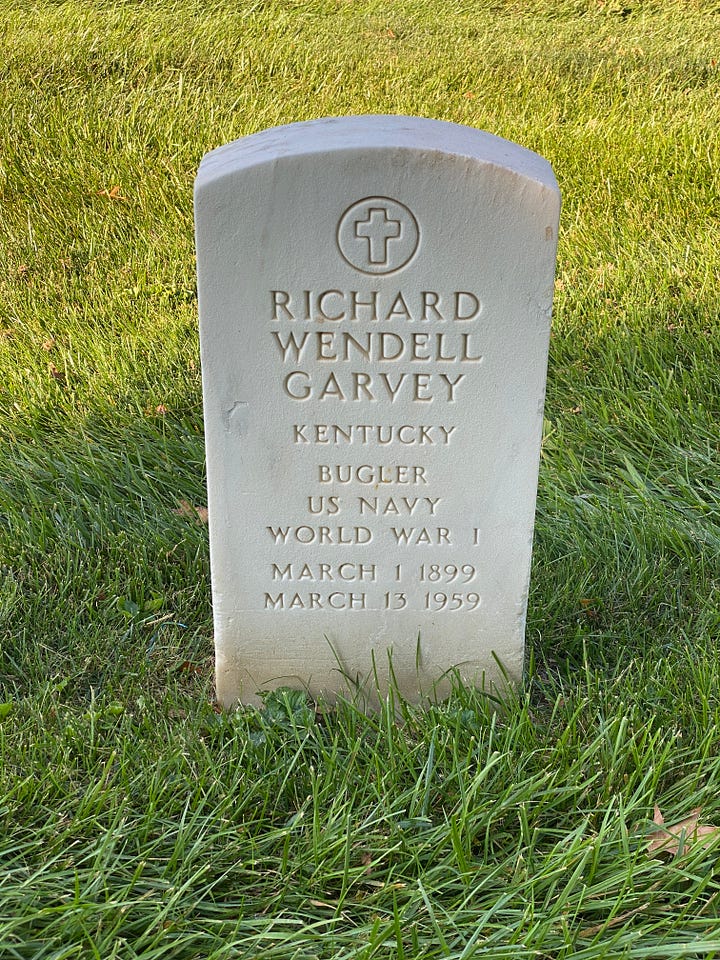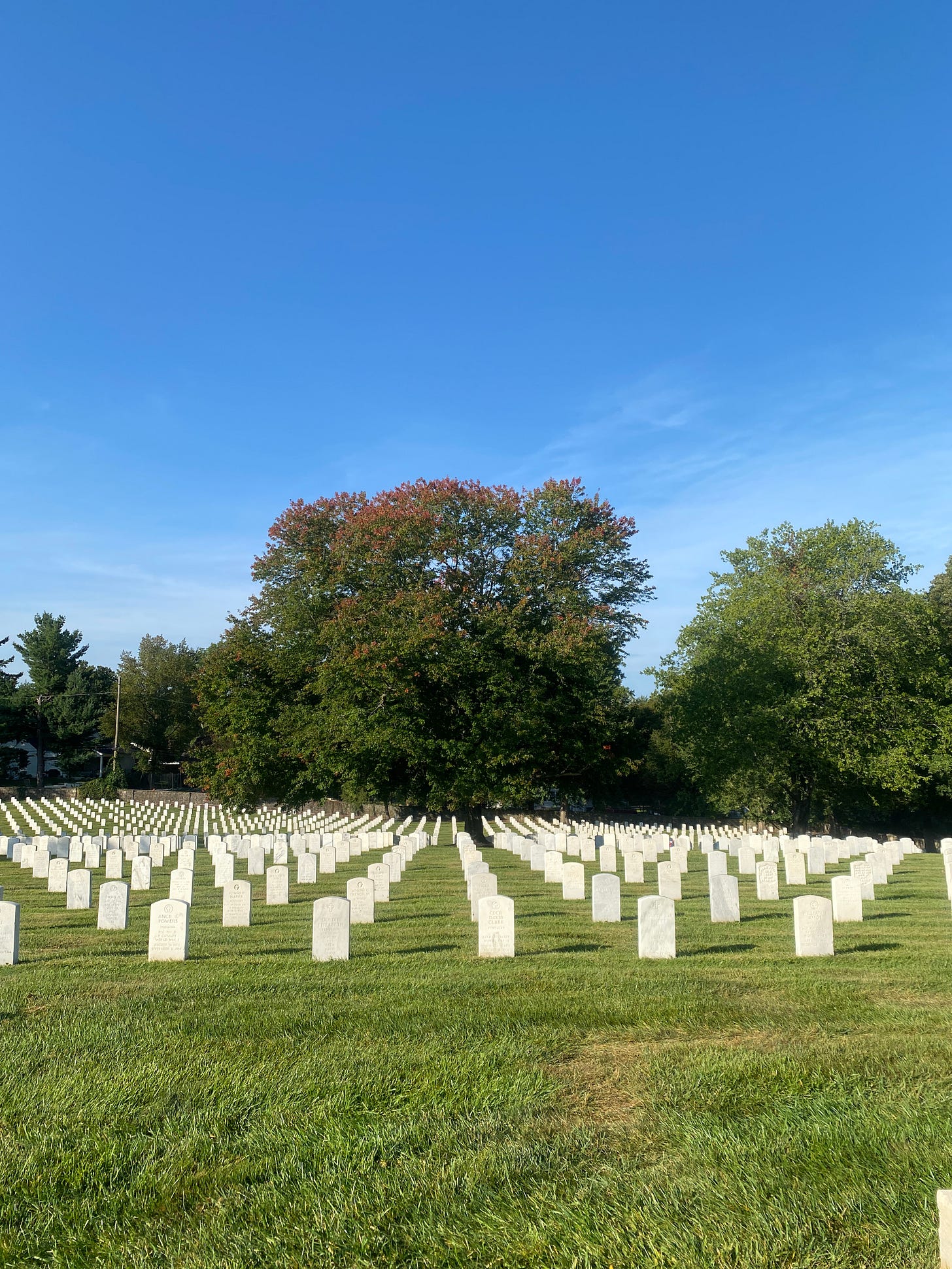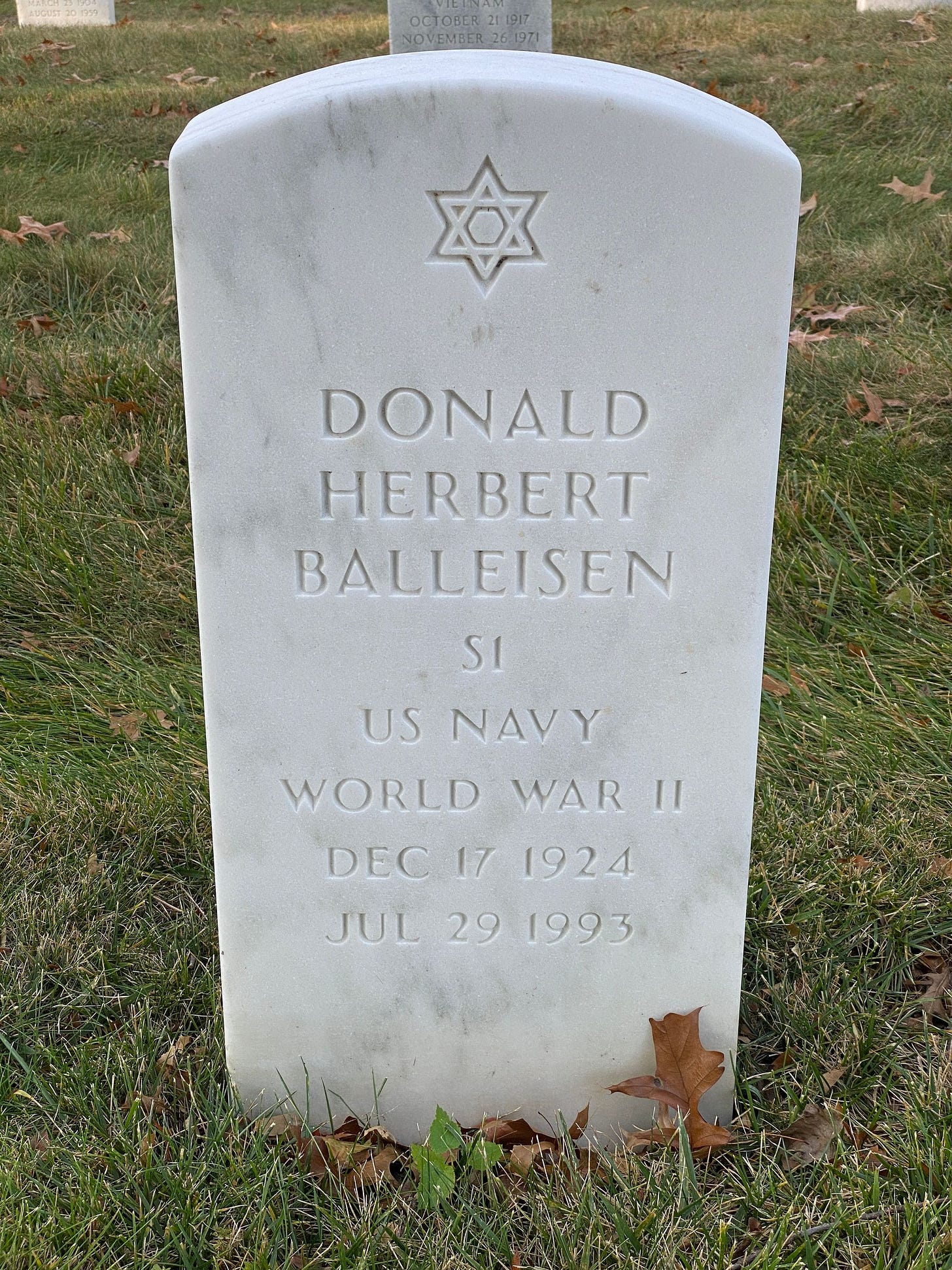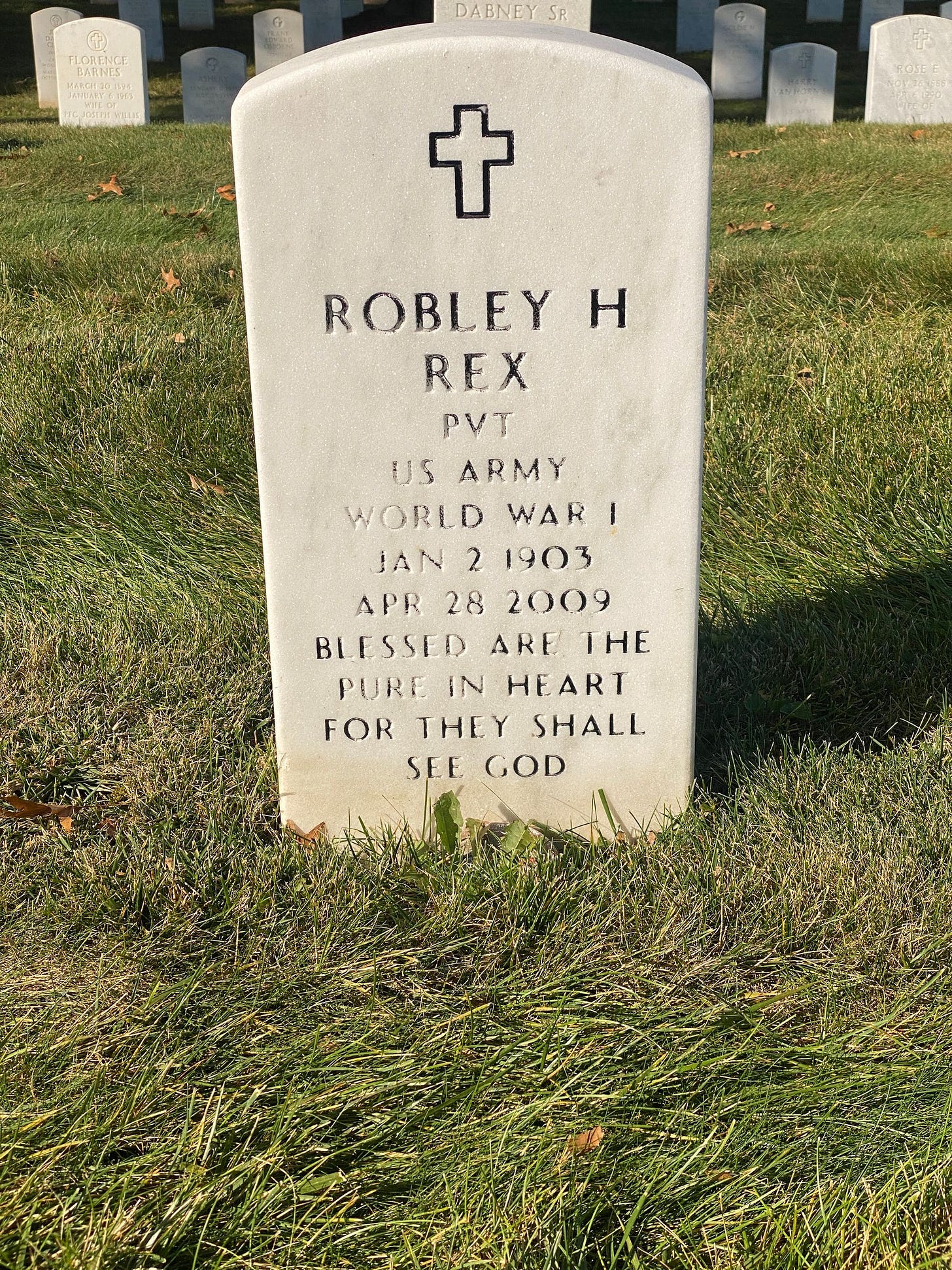Walk 23 – Zachary Taylor National Cemetery
Reflecting on faith, patriotism, leadership and buglers
When we recall President Zachary Taylor, if we do at all, we perhaps have vague notions of a bumbler or even almost a non-entity in the crucial years leading up to the American Civil War. He died in office 15 months after his inauguration; we perhaps imagine the traits belonging to his weak successor, Millard Fillmore, as characteristic of Taylor. In reality, he didn’t serve long enough for us to form a decent judgment. We might wish to remember, though, that Ulysses S. Grant, as astute a judge of character and ability as any American, admired General Zachary Taylor. He fought under Taylor during the Mexican War and recalled Taylor in his Memoirs:
“General Taylor was opposed to anything like plundering by the troops, and in this instance, I doubt not, he looked upon the enemy as the aggrieved party and was not willing to injure them further than his instructions from Washington demanded. His orders to the troops enjoined scrupulous regard for the rights of all peaceable persons and the payment of the highest price for all supplies taken for the use of the army.
“General Taylor was not an officer to trouble the administration much with his demands, but was inclined to do the best he could with the means given him. He felt his responsibility as going no further. If he had thought that he was sent to perform an impossibility with the means given him, he would probably have informed the authorities of his opinion and left them to determine what should be done. If the judgment was against him he would have gone on and done the best he could with the means at hand without parading his grievance before the public. No soldier could face either danger or responsibility more calmly than he. These are qualities more rarely found than genius or physical courage.
“General Taylor never made any great show or parade, either of uniform or retinue. In dress he was possibly too plain, rarely wearing anything in the field to indicate his rank, or even that he was an officer; but he was known to every soldier in his army, and was respected by all."
I saw many gravestones of infants or wives who died young. Amidst a sea of crosses, I saw one Star of David. What does it say about his faith and patriotic loyalties that he wished to find eternal rest here? What does it say about America?
Here lies Robley Rex, who lived to be 106 years old. At age 85, he began volunteering at our local Veterans Administration Medical Center. Over more than 20 years, he volunteered more than 14,000 hours. After his passing, the Medical Center was named in his honor.
I also saw the headstones of two military buglers from the early 20th century. Today, outside the military, we might snicker at the notion of a man in uniform blowing a trumpet on a battlefield. Military men and women know better. Sound stirs us; it rouses us to noble deeds.


I suspect General Taylor respected buglers immensely.





